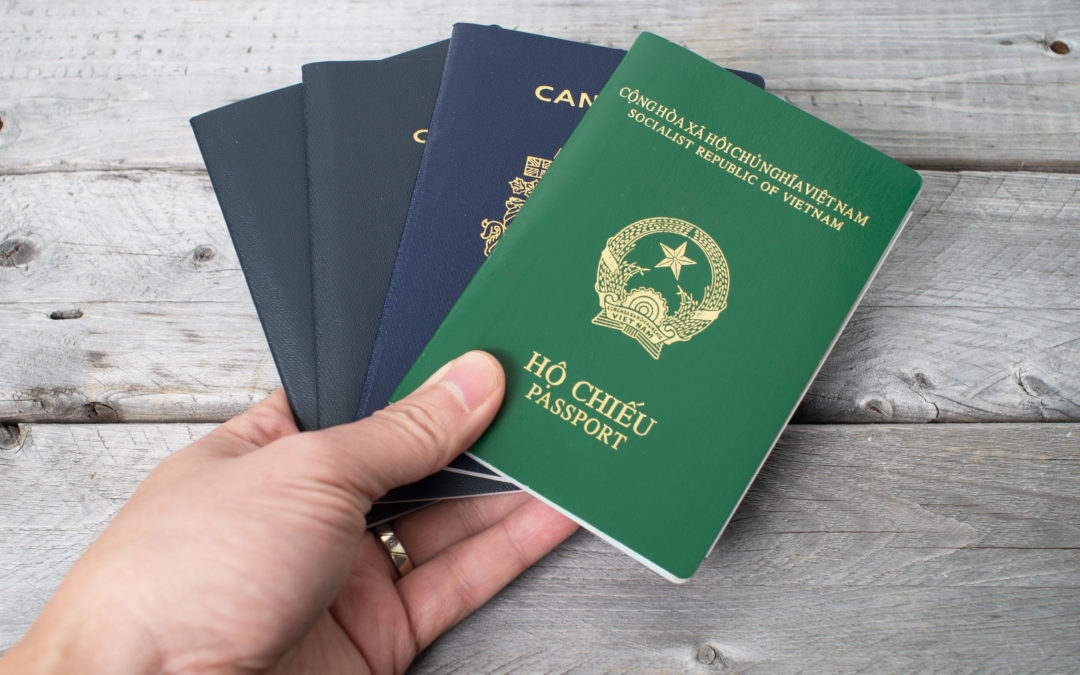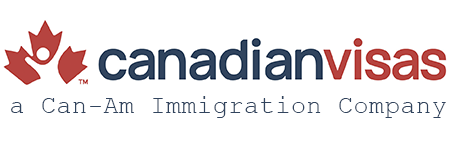
Aug 9, 2023 | Blog, Canadian Employers, Immigration, In the News, New Immigration Programs, New Laws, Skilled Workers, Temporary Foreign Workers, Working In Canada
In a move aimed at simplifying the process of hiring temporary foreign workers, the Canadian federal government is introducing the “Recognized Employer Pilot” program. This initiative seeks to reduce bureaucratic hurdles for employers and provide a streamlined path for bringing in foreign workers. However, as this program unfolds, experts and advocates are raising important questions about the program’s scrutiny measures, potential economic implications, and its impact on Canadian society.
The Recognized Employer Pilot: A Breakdown
Streamlining the Hiring Process
The Recognized Employer Pilot program, set to launch in September, is poised to revolutionize the way Canadian employers engage temporary foreign workers. Initially targeting the agriculture sector, the program will later extend to all industries in January. Eligible employers with a strong history of compliance with program requirements will receive a three-year permit to bring in foreign workers without the need for frequent reapplications.
“The Recognized Employer Pilot will cut red tape for eligible employers, who demonstrate the highest level of protection for workers, and make it easier for them to access the labour they need to fill jobs that are essential to Canada’s economy and doof security”
Addressing Concerns and Enhancing Protections
However, with this shift comes valid concerns about the level of scrutiny these workers will receive and the economic landscape they will enter. As Canada grapples with challenges such as housing affordability, rising interest rates, and high inflation, critics are urging a closer look at the conditions foreign workers will face.
The Current Scenario: Temporary Foreign Worker Program
Presently, employers must undergo a labor market impact assessment (LMIA) each time they hire foreign workers under the Temporary Foreign Worker Program. This assessment ensures that a genuine need exists for filling the position. In recent years, the number of approved temporary foreign worker positions has surged, from approximately 89,000 in 2015 to over 221,000 in the last year. This doesn’t account for international students, graduates with open-work permits, and mobility agreements with various countries.
The Shift Towards Recognized Employers
The Recognized Employer Pilot promises to alleviate administrative burdens for qualified employers. These are employers who can demonstrate a robust commitment to worker protection. The program aims to simplify labor access for vital roles within Canada’s economy and food security. Employment Minister Randy Boissonnault highlights the program’s budget of $29.3 million over three years and asserts that the application process will be rigorous, targeting employers with exemplary recruitment practices.
Balancing Opportunity with Responsibility
Worker Protections and Social Impact
The growing reliance on foreign workers, though addressing labor shortages, is not without its challenges. Workers in low-skill, low-wage positions have reported abuses and exploitation by employers. Critics argue that without thorough oversight, such abuses could continue to persist, even within the trusted employer framework. The flexible labor force facilitated by these initiatives may strain housing markets, healthcare accessibility, and education systems.
Syed Hussan, executive director of Migrant Workers Alliance for Change, emphasizes that the effectiveness of the Recognized Employer Pilot hinges on the scrutiny of employers. He raises concerns about workers’ reluctance to complain due to potential reprisals. While the government has taken steps to protect migrant workers, further vigilance is necessary to ensure their rights and well-being.
Conclusion: Toward a Balanced Approach
In a bid to bolster Canada’s workforce and ensure essential services, the Recognized Employer Pilot program offers a unique pathway for employers to hire temporary foreign workers. While this move is promising, it also calls for a careful balance between streamlining processes and safeguarding worker rights. The success of this program lies in the implementation of stringent scrutiny measures and ongoing efforts to protect the well-being of all workers involved.
(more…)

Mar 20, 2020 | Featured, In the News, New Laws, Policies and Problems
The last few days have been a whirlwind and we know many of you are worried about the processing of your applications, reuniting with family, or returning to Canada. We want to assure you that you are not alone. Can-Am Immigration and our staff are here to provide you with the most up-to-date information pertaining to the Coronavirus as it relates to Canada Immigration, applications, and entry into the country.
CANADIAN BORDER CLOSED
As of March 17, 2020, the Canadian border is closed to non-Canadian citizens. Travel to Canada is limited to citizens, permanent residents, immediate family members and essential travel only. On March 18, 2020, the Canadian and United States border was also closed to non-essential travelers. This means that only Canadian citizens or permanent residents can travel from the United States to Canada. Travel for business or trade purposes is still allowed.
AIR TRAVEL LIMITED
To prevent the spread of the Coronavirus, airline companies are instructed not to allow anyone to board an aircraft if they are showing any signs of symptoms of COVID-19. Those individuals who believe they may be infected should not travel and should not take their chances to board an aircraft at this time.
ONLY 4 CANADIAN AIRPORTS OPEN
On March 18, 2020 the Canadian Prime Minister Justin Trudeau announced the closure of all Canadian airports with exception to the following four (4). All air travel, with exception to flights originating from the United States, Mexico, Caribbean, and St-Pierre and Miquelon will be routed to these airports to help with the containment of the COVID-19 virus.
WHAT YOU SHOULD KNOW
- Immigration Canada has cancelled all inland landing interviews and will conduct interviews by phone. You will be contacted by IRCC if you had a scheduled landing interview.
- Biometrics offices are closed and are not providing services at this time. If you received a request to complete the step of biometrics, you will automatically be given 90 days to complete this step.
- Flag-polling is not permitted and is not encouraged.
- IELTS and CELPIP in-Canada testing centres are currently closed until further notice.
Our offices will remain open and we will continue to provide updates as necessary. We hope that you and your family stay safe during this difficult and unprecedented time.

Jun 18, 2019 | Caregiver Program, Complete Representation, Featured, Immigrate to Canada, In the News, New Immigration Programs, New Laws, Temporary Foreign Workers, Work Permits, Working In Canada
New Caregiver Programs take effect today. Immigration, Refugees and Citizenship Canada (IRCC) has made changes to the In-Home Caregiver Program. These changes affect how employers hire caregivers and what is required as part of the approval process for both employers and caregivers. As of June 18, 2019 employers who are hiring caregivers from overseas are no longer required to submit an Labour Market Impact Assessments (LMIA) application for approval. Any LMIA application that was submitted on or before June 17, 2019 will continue to be processed and work permits for those caregivers will still continue to process as well. Caregivers who are currently in Canada on work permits that require extensions or those that are changing employers will require new LMIAs and new work permits.
There are now 2 new caregiver streams to consider when applying to hire a caregiver from overseas. Employers should consider starting early as it is expected to take about 12 months for a caregiver to arrive in Canada on a work permit.
Home Child Care Provider pilot (NOC 4411)
Home Support Worker pilot (NOC 4412)
General Program Requirements for Employers and Caregivers
- Employers will need to complete the job offer form
- Caregivers will need to submit an application for permanent residence along with a work permit application
- Caregivers can also apply for their spouses and children to accompany them to Canada and can obtain open work permits and study permits
- Caregivers must meet the eligibility criteria before applying for permanent residence, if eligible they will receive work permits to come to Canada
- Work permits will be valid for 3 years and will give the caregiver the opportunity to complete 24 months of full-time work as a caregiver
- Processing time can take up to 1 year for work permits to be issued.
- After the caregiver completes 24 months of work he/she will need to submit proof and their PR application will be finalized.
These new applications will require careful preparation by an authorized representative. It is strongly recommended that caregivers hire an authorized representative to ensure that their application will qualify and that they will achieve their goal of work permits and then eventually permanent residency in Canada.
For all inquiries, questions or concerns regarding these changes, please give us a call at +1-416-665-3939 or from inside Canada toll-free 1-888-808-7338.

Nov 10, 2017 | In the News, New Laws, Permanent Residency
Good news for families! As of October 24, 2017, the government of Canada has changed the definition of “dependent child” to “under 22 years of age”. Previously, the rules were changed to limit the age to Under 19. This was problematic for many families who had children that were, 19, 20, 21 as those children were not eligible to be included in an application for permanent residence.
As of October 24th, children under the age of 22 may be included in their parents applications, or be sponsored to Canada by Canadian citizen or permanent resident parent. Foreign workers who are planning to come to work in Canada may include their children who are under the age of 22 to accompany them to Canada.
For further information, feel free to call our office to speak with a consultant.

Jun 26, 2017 | Blog, Citizenship, Immigrate to Canada, In the News, New Laws
Immigration, Refugees, and Citizenship Canada (IRCC) announced that Bill C-6 received Royal Assent. As a result, several changes are now taking place, amending the Citizenship Act, and improving the process for applicants to become Canadian citizens. Some changes have already gone into effect; others will be going into effect in the near future. For example, applicants who receive citizenship will no longer be required to intend to live in Canada. This is beneficial to those who may have to live outside of Canada for work or other reasons. Additionally, dual citizens will no longer be treated differently. Rather than revoking citizenship for certain crimes, individuals with dual citizenship will be treated just the way any other Canadian citizen would.
Changes that will take effect in the future include the reduction of time that permanent residents must be physically present in Canada. At present, applicants must be in Canada four (4) years out of six (6) in order to apply for citizenship. The new change will reduce this time to three (3) years out of (5) five. In addition to this, the age range for individuals to meet language and knowledge requirements will be reduced from 14-64 years to 18-54 years. Finally, individuals who are in Canada as temporary residents or protected persons will be able to count this time as part of their physical presence requirement in order to attain citizenship.
Our team of immigration consultants can assist you in determining your eligibility to apply for citizenship. Take our free online assessment or contact us today to discuss your immigration options.

Jun 9, 2017 | Blog, Canadian Experience Class, Express Entry, Federal Skilled Trades, Immigrate to Canada, New Laws, Permanent Residency, Provincial Nominee Program, Skilled Workers
June 8, 2017 – Immigration, Refugees, and Citizenship Canada (IRCC) has updated the Express Entry pool in several ways. As of June 6, candidates in the pool receive additional points for French language as well as having siblings in Canada. But that is not the only change made on June 6th. In addition to this, IRCC has introduced a new feature, which ranks candidates with tied Comprehensive Ranking Score (CRS) scores based on the date and time they submitted their profile. Thus, candidates who submitted their profiles earlier will be ranked higher. Updating your profile will not change the date, but if you remove your profile or if your profile expires and you subsequently create a new profile, you will be ranked according to the date of your new profile.
This update allows IRCC to better manage the number of candidates that receive an Invitation to Apply (ITA). In all previous draws, all candidates who had the minimum CRS points received an ITA and were then able to apply for permanent residence. In future draws, candidates will be ranked based on their CRS scores as well as the date they created their profile. This way, IRCC will send invitations only to the top ranked candidates. So if the cut-off CRS score is 410 and the maximum number of invitations is 4,000 then only the top ranking candidates will receive an ITA. If so many candidates have the same CRS score, those who submitted their profile earlier will receive invitations. The rest will remain in the pool and will be eligible to receive an ITA in a subsequent draw.
What this means for you is that you should prepare your Express Entry profile right away. Individuals who wish to enter the Express Entry pool to possibly receive an ITA in the next draw will need to first determine that they are eligible for one of the three current economic programs. The first step to determine your eligibility is to complete our free online assessment. Our team of consultants will review and assess your qualifications to determine if you meet the requirements for an Express Entry application. If you are eligible you will be able to proceed with the next step towards making an application. This assessment will rank your minimum language requirement, skilled work experience and education level.
Candidates who meet the minimum requirements of the following economic programs may make an application to the Express Entry pool:
Certain Provincial Nominee Programs allow candidates to apply through the Express Entry pool. You may be required to enter the pool before or after receiving a nomination, depending on the requirements of the provincial program. If you meet the requirements of a Provincial Nominee Program, we can assist you in the process of entering the Express Entry pool and submitting an application to the province of your choice. Applicants who receive a nomination from a province will receive 600 CRS points, increasing their chance of obtaining an ITA in the next round of invitations.






 Useful Resources for Canada
Useful Resources for Canada
 Useful Resources for U.S.
Useful Resources for U.S.
 Our Local Immigration Services
Our Local Immigration Services